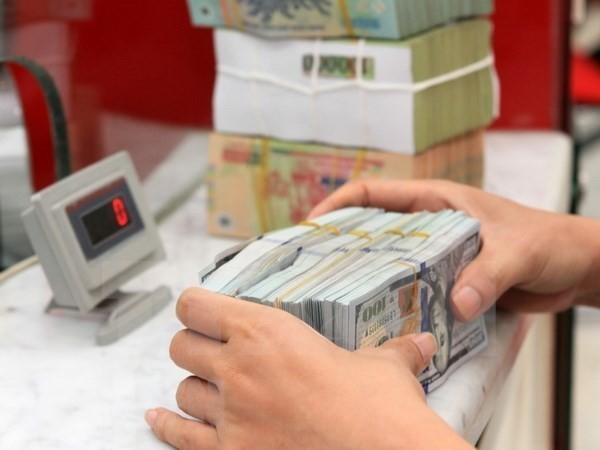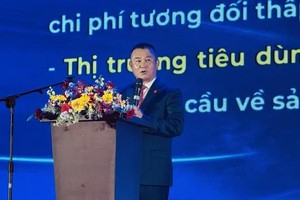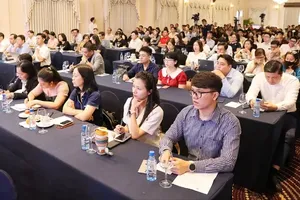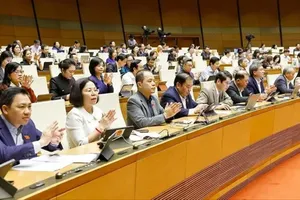 Illustrative image (Photo: VNA)
Illustrative image (Photo: VNA)
A statement by the USTR said that the move reflects the agreement reached earlier this week between the US Department of the Treasury and the State Bank of Vietnam (SBV).
The determination finds that the agreement between the US Department of the Treasury and the State Bank of Vietnam provides a satisfactory resolution of the matter subject to investigation and accordingly that no trade action is warranted at this time. The USTR, in coordination with the US Department of the Treasury, will monitor Vietnam’s implementation going forward, it said.
US Trade Representative Katherine Tai commended Vietnam for its commitment to addressing the US's concerns with its currency practices and setting an important example for the Indo-Pacific region.
American workers and businesses are stronger when their partners value their currency fairly and compete on a level playing field, she said, adding that going forward, in coordination with the US Department of the Treasury, the US side will work together with Vietnam to ensure implementation, and will continue to examine the currency practices of other major trading partners.
Earlier this week, the US Department of the Treasury and the State Bank of Vietnam reached an agreement to address the US’s concerns about Vietnam’s currency practices.
A joint statement by the US Department of the Treasury and the State Bank of Vietnam said that SBV Governor Nguyen Thi Hong and US Secretary of the Treasury Janet L. Yellen had a virtual meeting.
The US Department of the Treasury and the State Bank of Vietnam have had constructive discussions in recent months through the enhanced engagement process, and reached an agreement to address the US Department of the Treasury’s concerns about Vietnam’s currency practices as described in the US Department of the Treasury’s Report to Congress on the Macroeconomic and Foreign Exchange Policies of Major Trading Partners of the United States.
Vietnam confirmed that it is bound under the Articles of Agreement of the International Monetary Fund (IMF) to avoid manipulating its exchange rate in order to prevent effective balance of payments adjustment or to gain an unfair competitive advantage and will refrain from any competitive devaluation of the Vietnamese dong.
The State Bank of Vietnam is also making ongoing efforts to further modernise and make more transparent its monetary policy and exchange rate framework.
The State Bank of Vietnam will continue to provide necessary information for the US Department of the Treasury to conduct thorough analysis and reporting on the State Bank of Vietnam’s activities in the foreign exchange market in the US Department of the Treasury’s Semiannual Report to Congress on the Macroeconomic and Foreign Exchange Policies of Major Trading Partners of the United States.
























